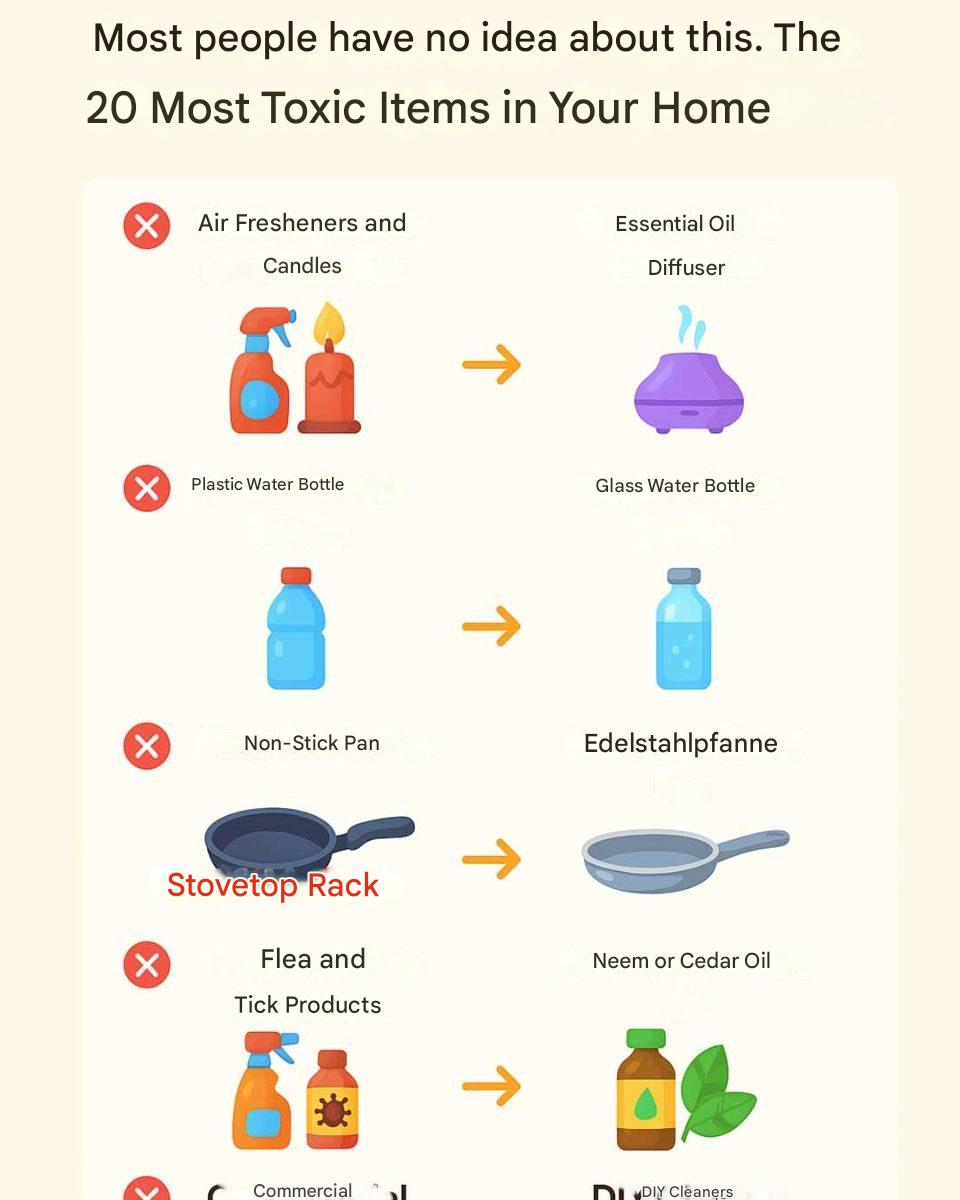Many people are unaware that there are many items in their homes that can pose significant health risks. From the products we use to clean our homes to the fragrances we enjoy, these everyday items can release harmful chemicals into the air that affect our health and well-being. This article aims to uncover these hidden dangers and show you how to create a safer living environment.
Understanding Household Toxins: What You Need to Know
Household toxins are chemicals found in everyday items that can be harmful to your health. These toxins can be inhaled, ingested, or absorbed through the skin, leading to a range of health problems, from minor irritations to serious illnesses. Understanding the sources and effects of these toxins is the first step to reducing exposure and protecting your health.
Advertising
1. Air fresheners: The danger of fragrances.
Air fresheners are often used to mask odors. However, they often contain volatile organic compounds (VOCs), which can cause respiratory problems and other health issues. Ingredients like phthalates and formaldehyde are known to be harmful yet are found in many air freshener products.
Instead, use: open windows for natural ventilation, place bowls of baking soda or activated charcoal around the home to absorb odors, or use essential oil diffusers with pure oils like lavender, eucalyptus, or lemon.
Air fresheners are often used to mask odors. However, they often contain volatile organic compounds (VOCs), which can cause respiratory problems and other health issues. Ingredients like phthalates and formaldehyde are known to be harmful yet are found in many air freshener products.
Instead, use: open windows for natural ventilation, place bowls of baking soda or activated charcoal around the home to absorb odors, or use essential oil diffusers with pure oils like lavender, eucalyptus, or lemon.
2. Candles: The fragrance culprit.
While candles can create a cozy atmosphere, many are made of paraffin wax, which releases carcinogenic chemicals like benzene and toluene when burned. Scented candles can also contain synthetic fragrances that contribute to indoor air pollution.
Instead, opt for candles made of beeswax or soy wax with natural cotton or wooden wicks, scented only with essential oils.
While candles can create a cozy atmosphere, many are made of paraffin wax, which releases carcinogenic chemicals like benzene and toluene when burned. Scented candles can also contain synthetic fragrances that contribute to indoor air pollution.
Instead, opt for candles made of beeswax or soy wax with natural cotton or wooden wicks, scented only with essential oils.
3. Plastic Water Bottles: The Danger of Leachate.
Plastic water bottles, especially those made of polycarbonate, can leach harmful chemicals like bisphenol A (BPA) into the water. BPA is an endocrine disruptor that can impair hormones and potentially lead to health problems.
Use instead: Choose stainless steel or glass water bottles labeled “BPA-free” for a safer, reusable alternative.
Plastic water bottles, especially those made of polycarbonate, can leach harmful chemicals like bisphenol A (BPA) into the water. BPA is an endocrine disruptor that can impair hormones and potentially lead to health problems.
Use instead: Choose stainless steel or glass water bottles labeled “BPA-free” for a safer, reusable alternative.
4. Non-stick cookware: Concerns about the coating.
Non-stick cookware is popular for its practicality, but the coatings often contain perfluorooctanoic acid (PFOA), a chemical linked to cancer and other health problems. When heated, these coatings can release toxic fumes.
Use instead: Switch to cookware with cast iron, stainless steel, or ceramic coatings that are free of PFAS and other harmful chemicals.
Non-stick cookware is popular for its practicality, but the coatings often contain perfluorooctanoic acid (PFOA), a chemical linked to cancer and other health problems. When heated, these coatings can release toxic fumes.
Use instead: Switch to cookware with cast iron, stainless steel, or ceramic coatings that are free of PFAS and other harmful chemicals.

